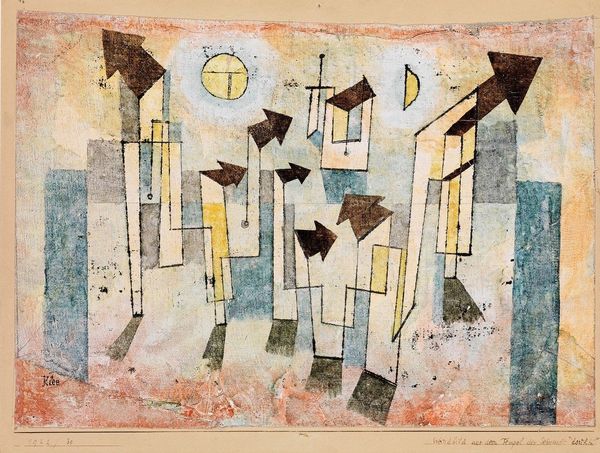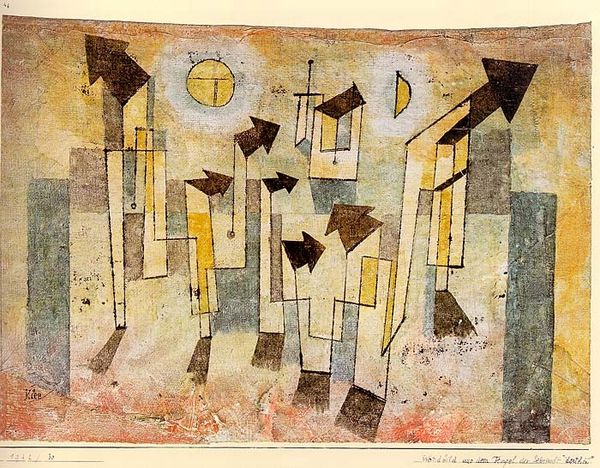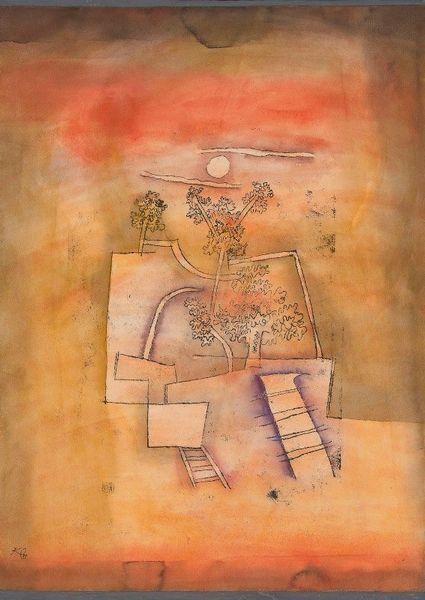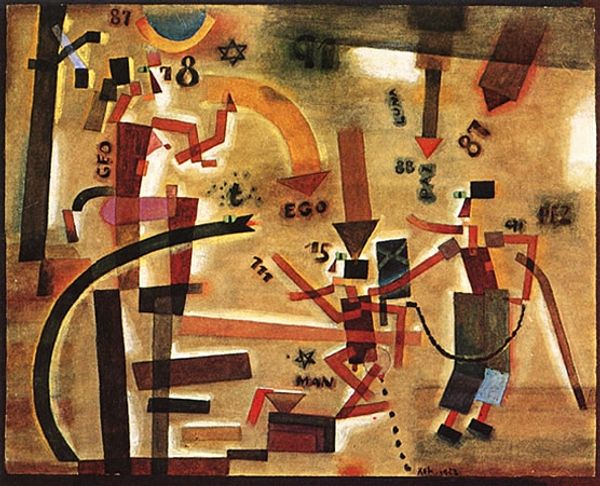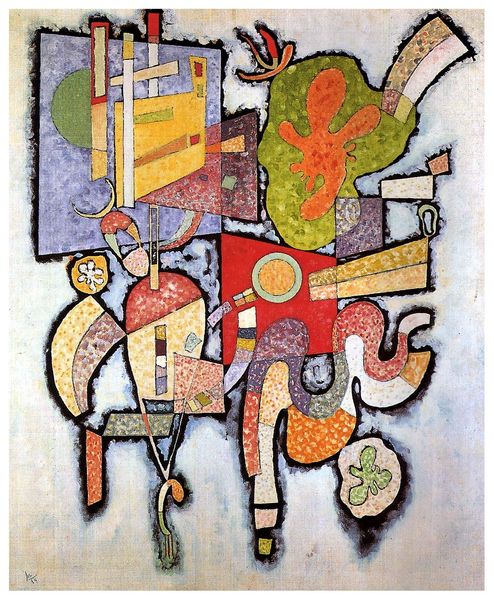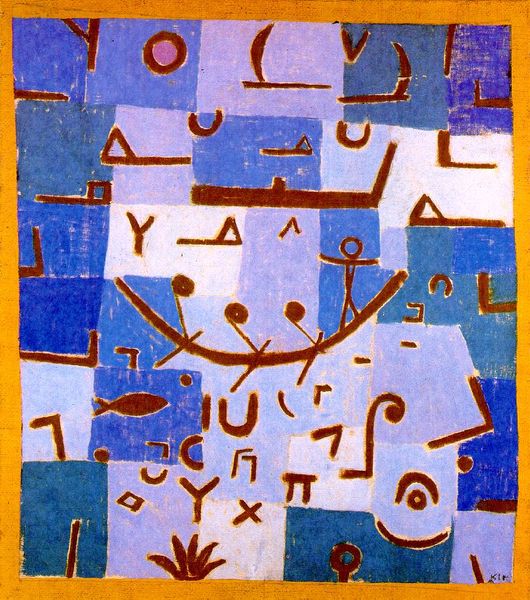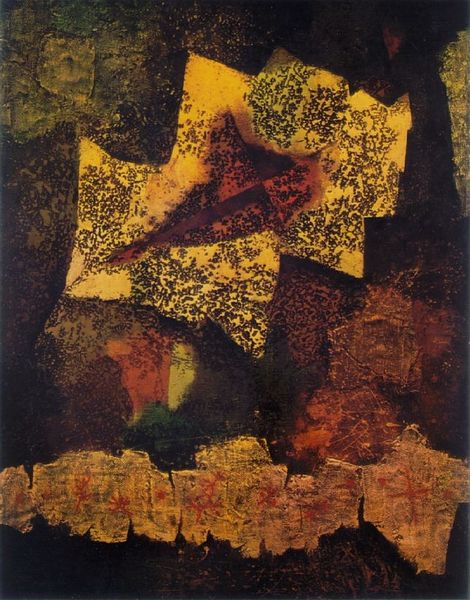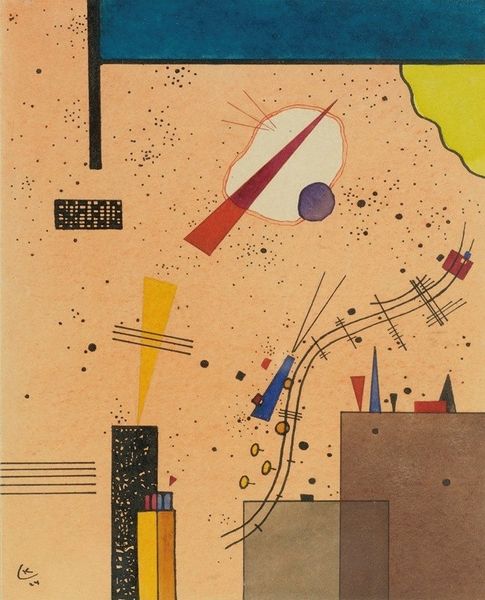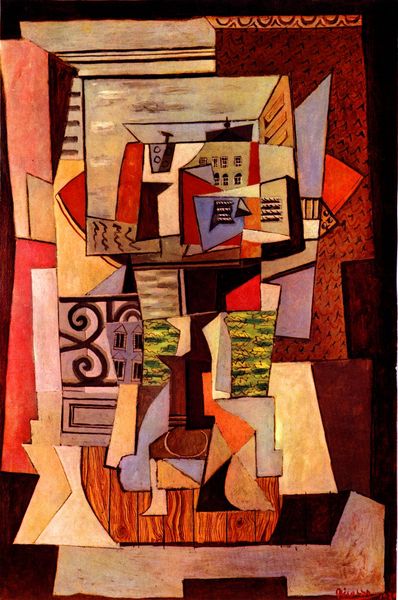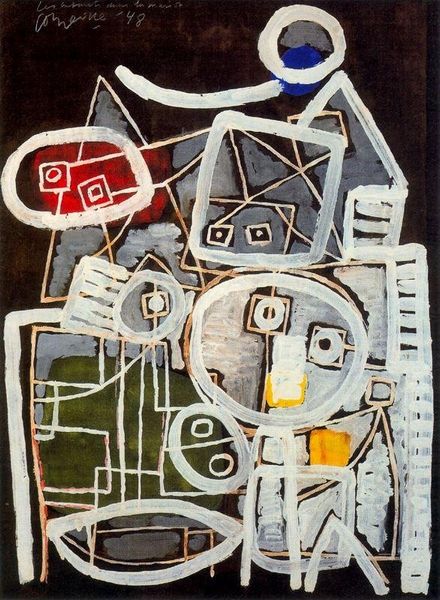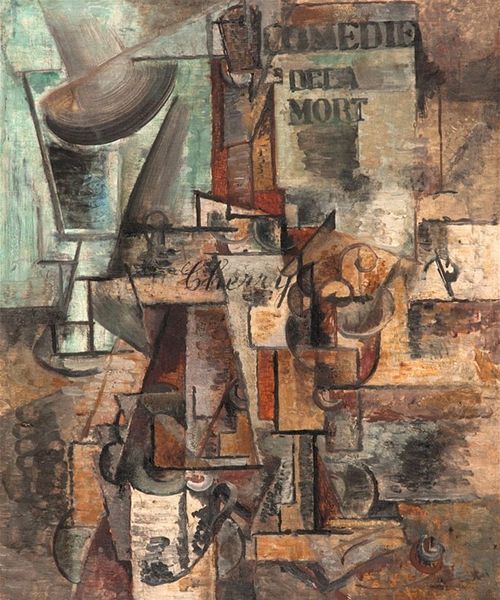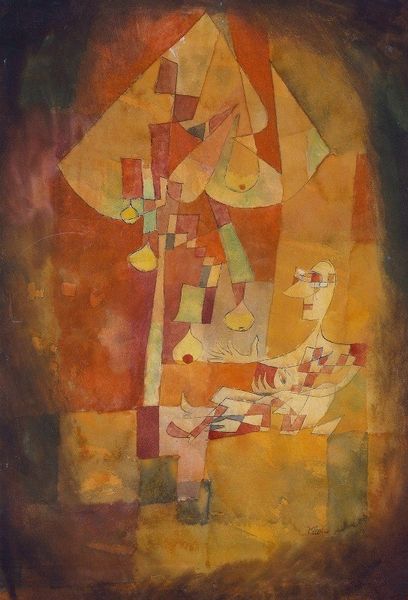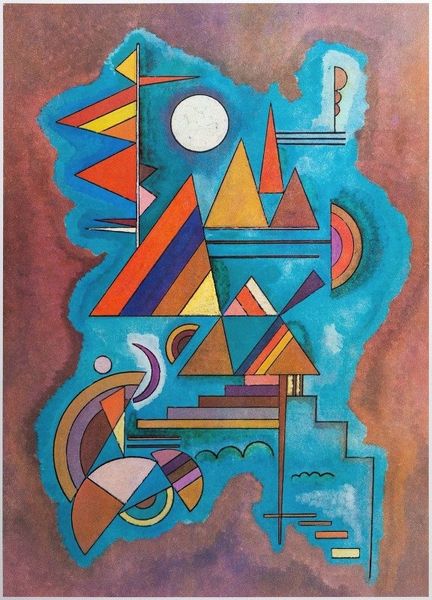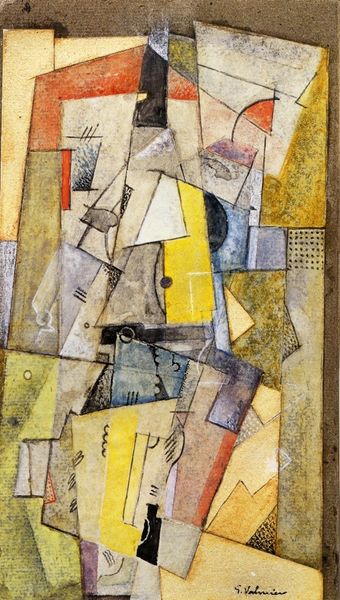
painting, watercolor, architecture
#
portrait
#
painting
#
house
#
form
#
watercolor
#
coloured pencil
#
geometric
#
expressionism
#
naive art
#
abstraction
#
painting painterly
#
line
#
cityscape
#
modernism
#
architecture
Dimensions: 24 x 32.5 cm
Copyright: Public domain
Editor: Paul Klee's 1927 watercolor and colored pencil work, "Part of G," gives me the immediate impression of a child's architectural fantasy, a whimsical cityscape constructed from geometric building blocks. What story does it tell you? Curator: Ah, yes, Klee, always the playful provocateur! I see a world teetering on the edge of dreams and reality, don't you? It's as if Klee is remembering a place more than depicting one. He’s pulling it from his subconscious, from his own memories. Notice how the buildings aren't quite plumb, the colors are joyful yet subdued, and that clock tower—is it telling time, or is time telling it a story? It's so evocative, it's like a half-remembered melody refusing to leave your mind. And tell me, does the earth feel solid beneath these pastel edifices? Editor: Not at all! The reddish-brown base seems almost liquid, a foundation built on shifting sands. It contributes to that feeling of a dreamscape, always in motion. It also kind of reminds me of 'naive art'. Curator: Exactly! Klee was deeply influenced by the art of children and the mentally ill, believing they possessed a raw, unfiltered vision. It's as though he tried to peel back the layers of learned perception to access a more primal mode of seeing. So, the real question is: are we looking at a part of G, or a part of Klee? Perhaps, we are experiencing a fusion of place and psyche. Editor: Wow, that makes me see the painting in a completely new way. It's not just a charming picture of a city; it's a glimpse into Klee's internal world. I hadn’t thought about the painting being the person instead of the place. Curator: Precisely! And isn’t that the beauty of art? It reflects us as much as it reflects the world. That, in turn, asks us to look deeper into both the artwork and ourselves.
Comments
No comments
Be the first to comment and join the conversation on the ultimate creative platform.
